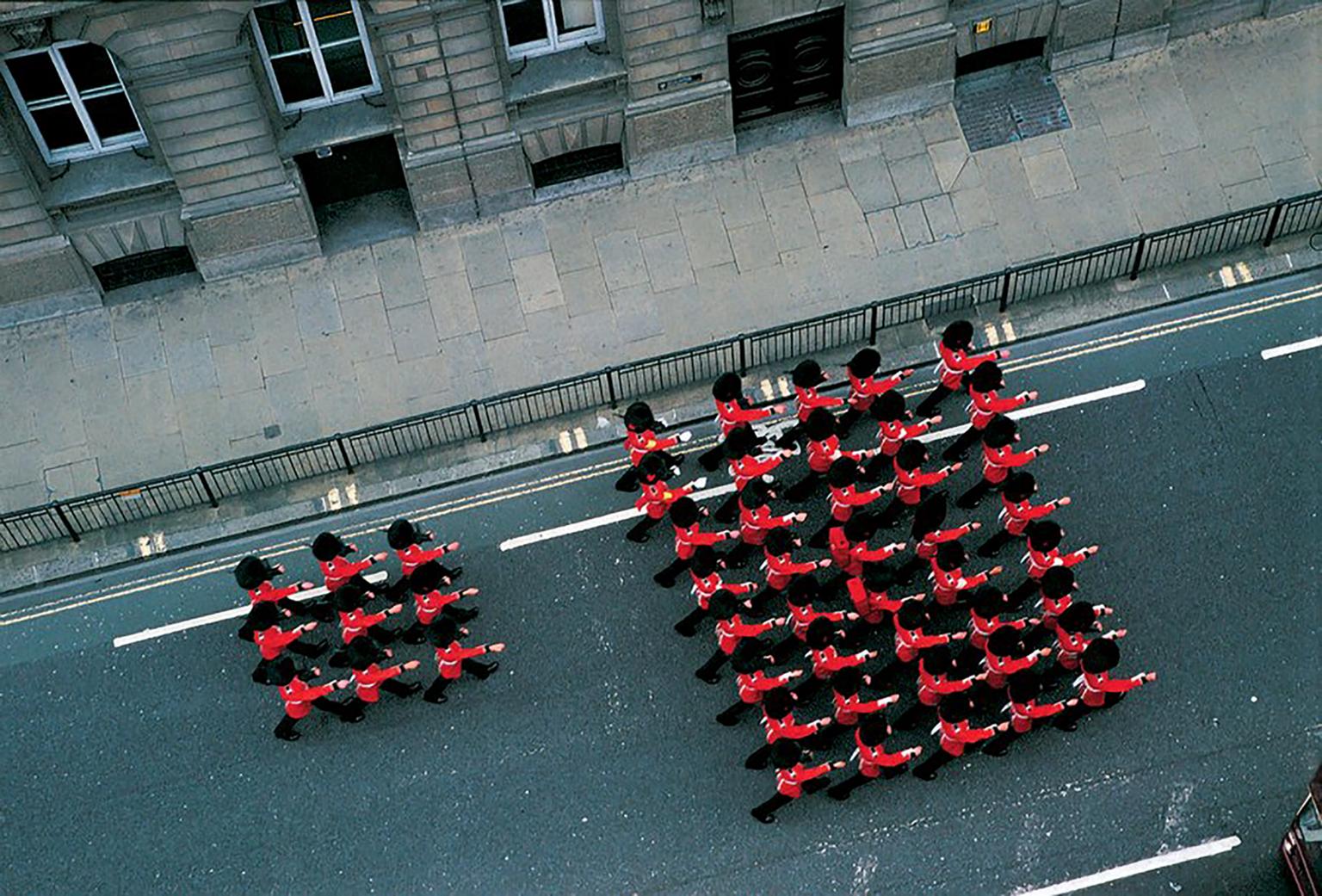
Guards is a part of the series “Seven Walks,” a collection of paintings, sketches, and moving image pieces commissioned by Artangel and developed over the period of five years of walking through the streets of London. Many of Alÿs’s long-standing concerns are addressed in “Guards,” including the way that streetscapes shape behavior, the unwritten rhythms of the city, and the use of daily walking to encounter new ideas and phenomena.
The piece was created in collaboration with Rafael Ortega and supported by Outset, and was performed in London’s financial district in July 2004, on a typically quiet Sunday morning. The artist passed on instructions to a troop of 64 Coldstream Guards which forms the basis of the film. The guards separately enter in the City of London, unaware of one another’s route and wander through the City looking for one another; upon meeting, they fall into step and march together until a square measuring 8 by 8 Guards is built, following which the complete formation marches towards the closest bridge; as they step on to the bridge, the guards break step and disperse, breaking from anonymous military mass to individual agents.
This assembling of the guards into blocks that eventually form a symmetrical unit resembles the work of minimalist sculptors such as Carl Andre (born 1935). In addition to this, Guards is also characteristic of the artist’s interest in misplaced or estranged bodies needing reconciliation. Here is the artist’s reflection on the same (quoted in 21 Portman Square 2005, p.30):
“Guards became a kind of social allegory, of the need for individuals to form themselves into a group. It’s also about the desire to reproduce the perfection of the machine – the need for this perfect illusion of synchrony. The military formation of the square exemplifies this – a human desire to match up to the perfection of geometry.”
The walks that Francis Alÿs has set out on never imply a final destination. The Belgian-born artist’s walks which are always documented and presented in video form, are instead both their own measure and a measure of the surrounding city, and complete at every point along the way.

